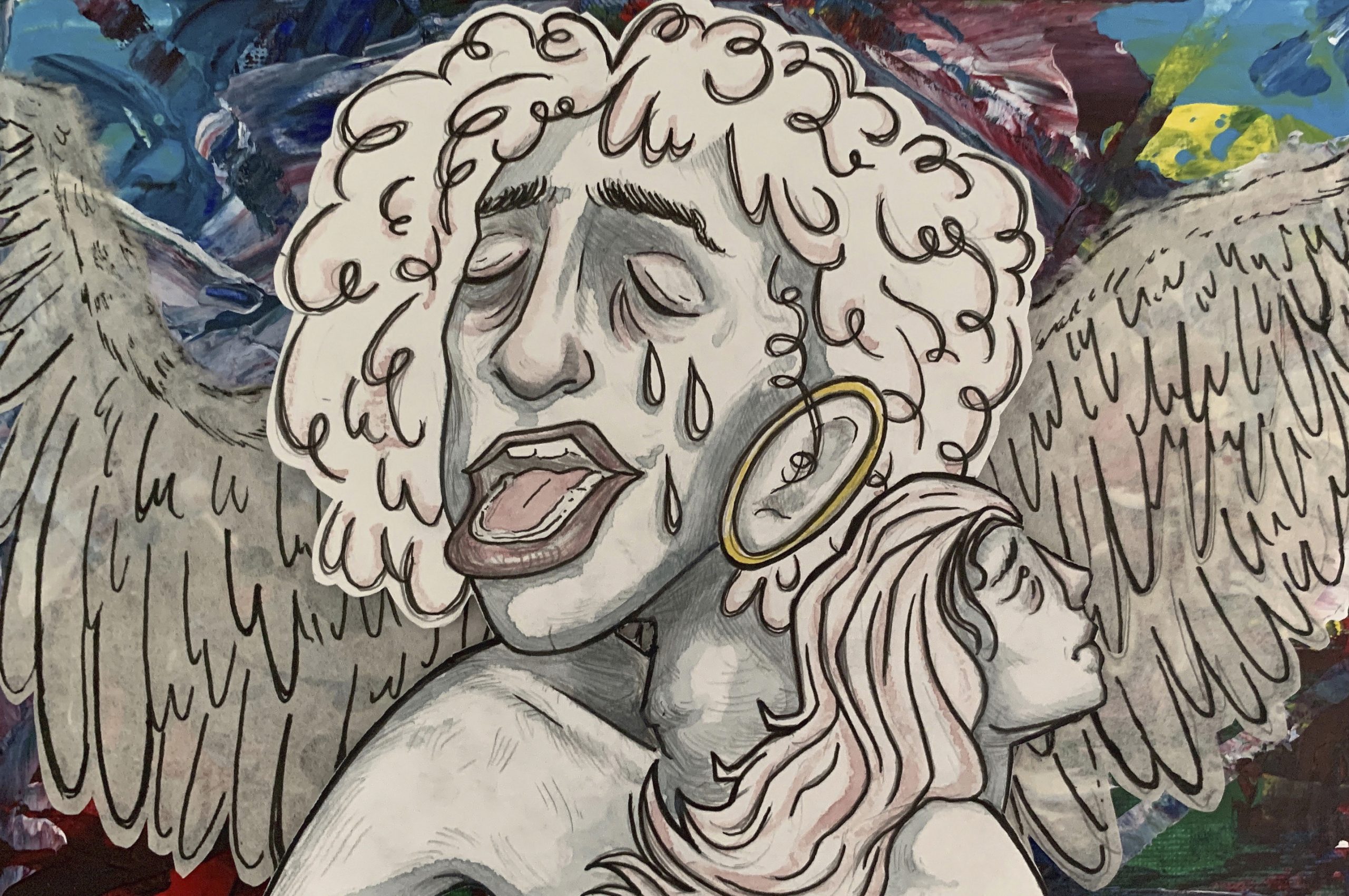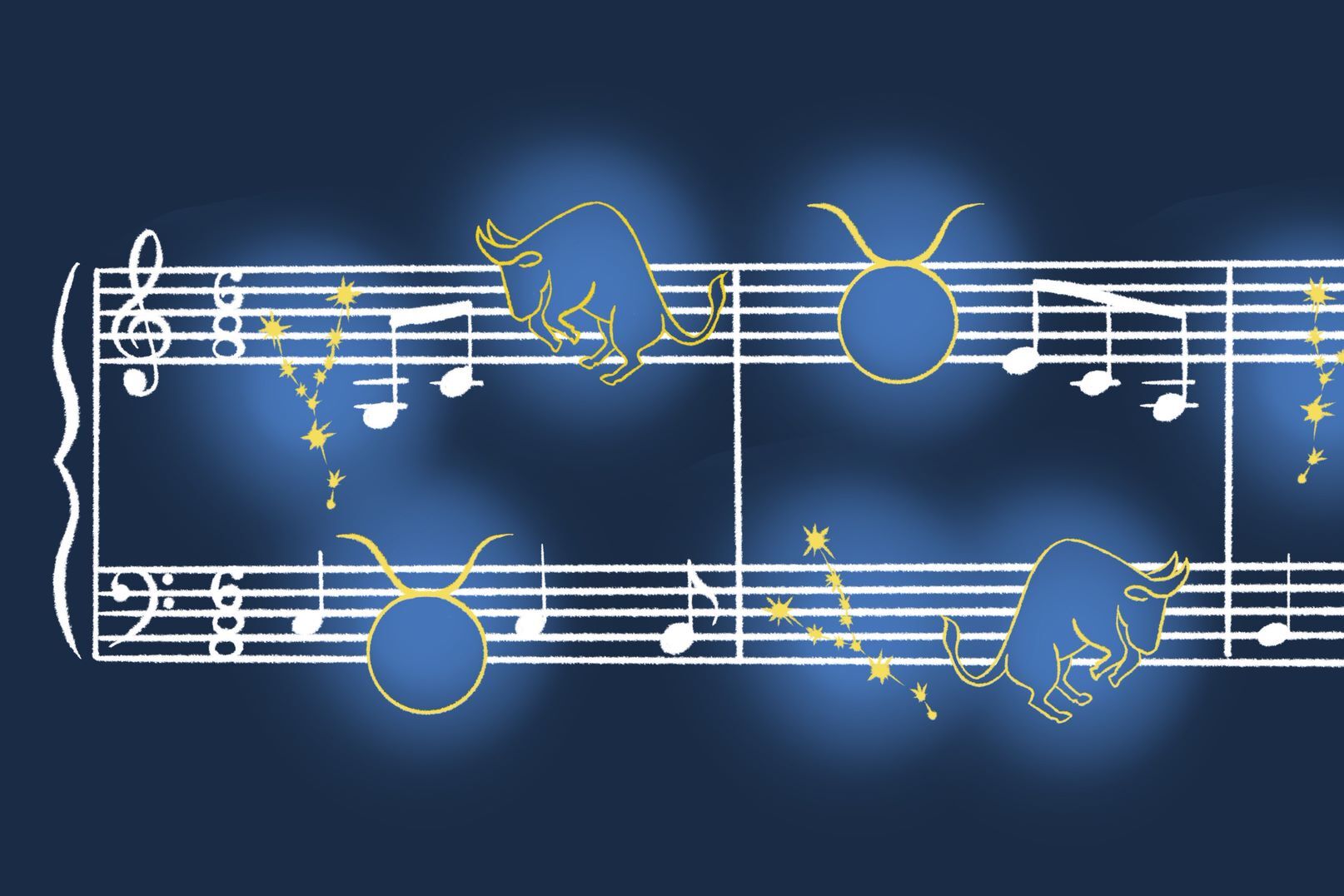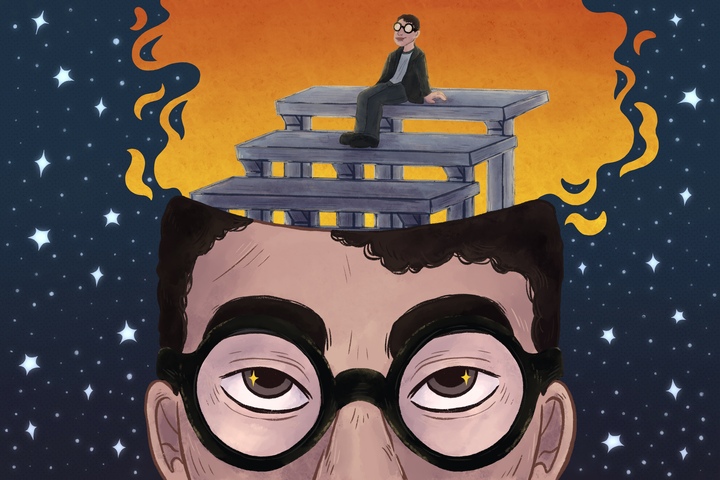Years ago, I had the privilege of seeing Young the Giant live, for whom Lewis Del Mar was opening. Though I know I should, most of the time I never look up the openers to any band I am going to see, and I don’t think I’m the only one. Lewis Del Mar’s opening performance sold themselves to me, so much so that I saw them in concert months later in their headlining tour. The duo consisting of Danny Miller (singer and guitarist) and Max Harwood (drummer and producer) lit up the stage with their presence. I felt like I had been enchanted by their performance; the spell they casted had my body moving to the music. But after that tour, Lewis Del Mar just kind of… disappeared without a trace.
After four years, Lewis Del Mar released their second album, August, on August 21. I spent a long time digesting this album before I felt like I would even be ready to write a review—and I think that statement is very telling of the substance and meat within the record. Their previous self-titled album felt lighter, with an experimental, alternative, reggae-inspired sound that suggested to the listener that it was time to dance.
The lyrics in August, however, are riddled with themes of death, depression, and addiction with allusions to religious figures like the archangel, Gabriel. If you’re not religious, do not take the biblical imagery as “reasons-to-not-listen-to-the-album”; the imagery is lyrically woven as a second read (or listen). The album follows a linear story of ceaseless wreckage: drugs, cheating, depression, tripping, death, relapse, hope for change, and repeat. It is like reading through a locked diary, describing a life that many live, and many of us do not know.
We’ve seen music and movie stars in the media who have dealt with addiction, and unfortunately it has taken the lives of people such as Amy Winehouse, Phillip Seymour Hoffman, Cory Monteith, Mac Miller, and the list goes on. The celebrity fast-life brings any and all human vices along with it. It’s easy access when you have the money, and I’m sure the stress of the job does not help. But how is someone in the process of rising fame supposed to deter all that comes with it?
August’s “Prologue” describes the life of an addict: memory loss and bad altercations, exemplified by lines like, “But Lord knows got holes in my memory / Ketamine don’t help that neither / Got rolled up by / Claiming they seen us on their streets.” Though ketamine (and a variety of other drugs) have brought them happiness in the past, the negative effects have begun outweighing the positive, and it feels like they cannot escape the situation they are in. It is wanting the best of both worlds at its finest, having the “tension release” while still being present in life without the altercations and bad habits.
Some of the songs, such as “Fever (CH. I),” “The Ceiling,” “Shutter,” and “TV” have more of an upbeat rhythm and tone, using the pop-reggae sound described earlier; it’s the “ponies and rainbows” effect, as my mother described Ed Sheeran’s earlier discography.Her description of “ponies and rainbows” refers to the ubeat sound of the music making the harsh topics such as addiction to drugs and alcohol feel glorified while the lyrics tell a completely opposite story of pain and heartbreak. Lewis Del Mar describes their experience as “Destructive in a pattern… / Summer of out sweet decline,” as if the repetitive destruction is a fever dream, contrasting the ideals of the glorification of the rock star lifestyle by auditory tone and the lyrical honesty of
their own experiences: “We want half the advance / In one dollar bills / In the city of the night / Where the joy can kill / Will the steel outlive me?”
Other tracks like “Rosalie (CH. II)” and “Sewers” speak to death and mourning. “Rosalie (CH. II)” describes the moment Danny and/or Max witnessed a mother crying on the street after losing her son (presumably a fentanyl/heroin overdose) on the fourth of July while they were partying, “I was dancing alive / Dilating the eye… Ooh, I saw you wailing / Like that was me (That boy, that boy ah-ha-ha).” While celebrating and using drugs, they are witnessing the harm that hard-drug usage has done to their direct community, their neighbors.
It’s an epidemic that has become increasingly covered by the media since more and more celebrities have passed away from the abuse of fentanyl-laced substances, though it has been going on since way before 2008 (exemplified by the passing of Heath Ledger). Danny identifies with this communal pain, “You are my mother, my father, my brother,” and the boy that has passed away. “That’s Gabriel beneath, the white sheet.”
Danny’s father, a Black Latinx man who suffered from schizophrenia, passed away earlier this year, and while his death could have been completely preventable, systemic flaws in the medical system (connected to the defunding of black communities and the support systems that should be in place for those communities) failed his father. His father had a schizophrenic episode during his stay at the hospital, and left the hospital without any staff noticing.
This context along with the past year that has been indicative of the current political and social climate in America was the reason that August’s first two singles included “Border (Ch. III)” (as well as “The Ceiling”). “Border (CH. III)” is an honest tale of Danny’s father’s experiences as a mentally ill Black Latinx man, as well as Danny’s confusion from appearing on the “border” of races, not appearing fully white, not fully Black, and not fully Latinx. His inherited identity from both his father and his mother made Danny feel ambiguous; “You’re a split identity / A fault line on the border / A disorder.” He speaks of both himself and his father, with later lyrics that describe Danny’s own struggle with mental illness, “It’s a painful history / How will I tell my daughter / It gets hard? / It’s a prison to live in your mind / With a child living on the inside.”
I cannot know or describe the experience of losing your father in a way that could have been preventable, and I don’t want to describe this album as if I know what his family went through, but it appears that he looks at his father as a reflection: “Am I the son? … No, I don’t wanna be this type of way.”These lyrics seem to refer to a fear of mentally disintegrating, the fear of being ill just as he had witnessed throughout his life with his father.
In the midst of the Black Lives Matter protests, many musical artists pushed back the release of records, EPs, and singles in solidarity, which I feel was appropriate. Lewis Del Mar choosing to open with such a melancholy song about race and the hardships that go along with mental illness was intentional—purposeful.
I feel as if I could spend days describing the complexities of this album, but I do not want to do all the work for you. I think it’s important to take what you can from a record with your own lifetime experiences, and reflect on the experiences of the artist who’s telling you their story. What I will say is I definitely recommend Lewis Del Mar’s August. It may make you cry, it may make you dance, it may make you question what could have happened to cause Danny and Max to write such a song— however, I would not pass up the opportunity to listen to such a well-written and thought out album.



